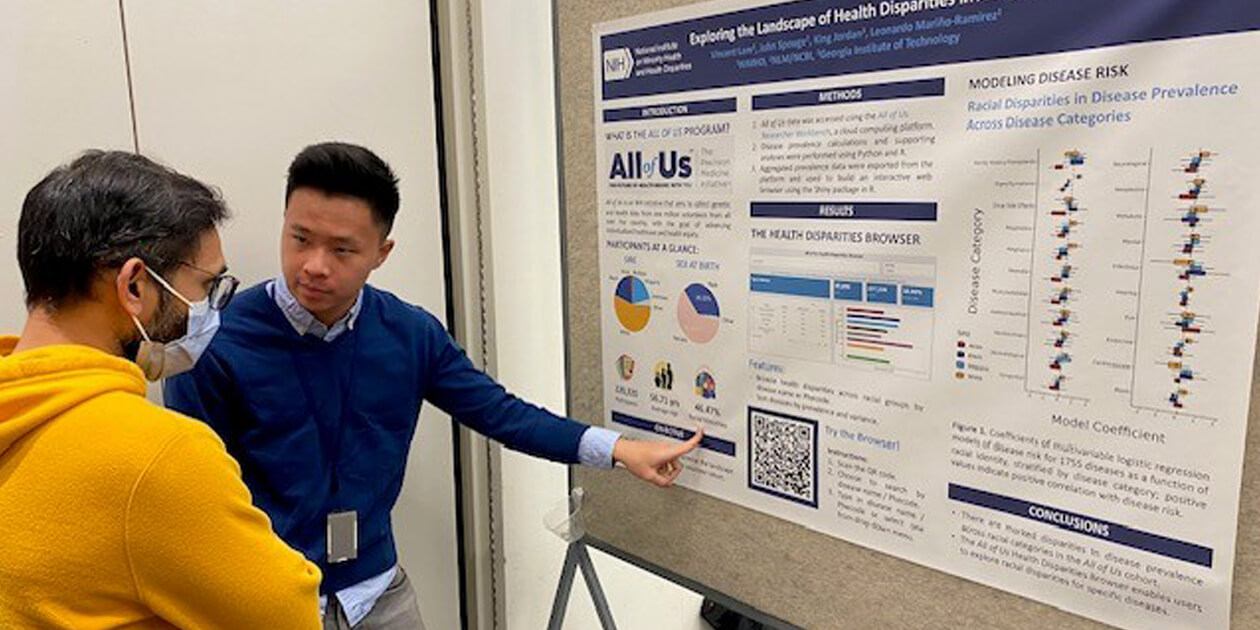NIH-Rwandan Fellow Develops Cost-Effective Diabetes Test
In the background on the screen from bottom left: NIMHD Director Dr. Eliseo J. Pérez-Stable, University of Maryland Dietetics Program Director Dr. Margaret Udahogora, and University of Global Health Equity Dean for Research Innovation Dr. Tomlin Paul.Standing from left: NIDDK Scientific Director for Intramural Research Dr. Michael W. Krause, NIH Deputy Director for Intramural Research Dr. Nina Felice Schor, NIH-Rwandan Fellow Dr.



 Dr. Monica Webb Hooper, Deputy Director of the National Institute on Minority Health and Health Disparities (NIMHD) at the National Institutes of Health (NIH), recently received two accolades for her leadership and influence across biomedical and behavioral research.
Dr. Monica Webb Hooper, Deputy Director of the National Institute on Minority Health and Health Disparities (NIMHD) at the National Institutes of Health (NIH), recently received two accolades for her leadership and influence across biomedical and behavioral research. Neighborhood poverty and the challenging living conditions that can come with it—such as higher vigilance, lower trust, and environmental dangers–have been linked to an accumulation of stress that can contribute to cellular aging and health problems later in life.
Neighborhood poverty and the challenging living conditions that can come with it—such as higher vigilance, lower trust, and environmental dangers–have been linked to an accumulation of stress that can contribute to cellular aging and health problems later in life.